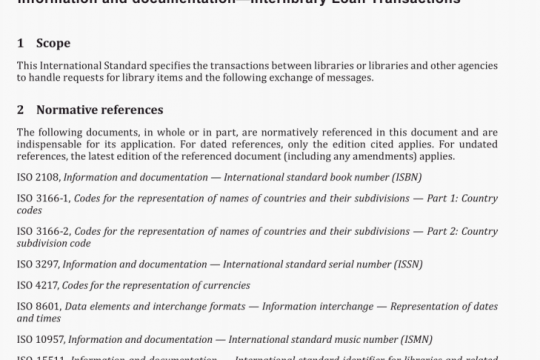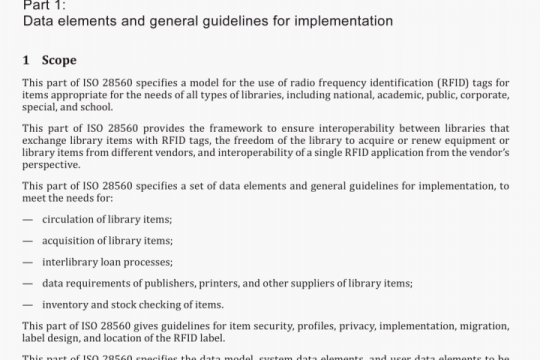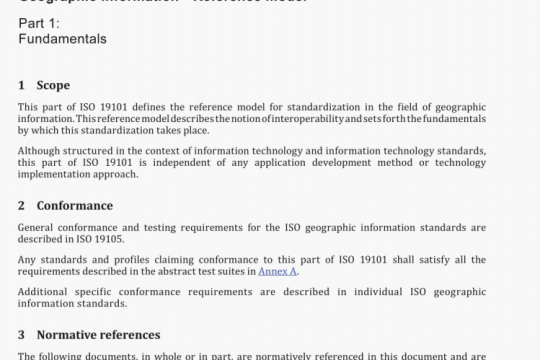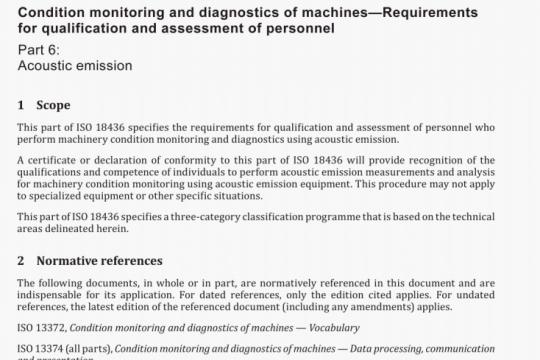ISO 11971:2020 pdf free
ISO 11971:2020 pdf free.Steel and iron castings一Visual testing of surface quality
This document covers the acceptance criteria for the visual testing of the surface of steel and iron castings.
Acceptance levels utilize Bureau de Normalisation des Industries de la Fonderie (BNIF) and Steel Castings Research and Trade Association (SCRATA) or Casting Technology International [CTI] reference comparators for the visual determination of surface roughness and surface discontinuities described as
follows:
– surface roughness;
– thermal dressing;
– mechanical dressing;
– non-metallic inclusions;
– gas porosity;
– fusion discontinuities;
– expansion discontinuities;
– metal inserts.
2 Normative References
There are no normative references in this document.
3 Terms and Definitions
No terms and definitions are listed in this document.
ISO and IEC maintain terminological databases for use in standardization at the following addresses:
– ISO Online browsing platform: available at htps://ww.iso.org/obp
– IEC Electropedia: available at htp://ww.electropedia.org/
4 Ordering information
The enquiry and order should specify the following information:
a) the casting areas where the surface is to be tested should be clearly indicated on the drawing or solid model;
b) the number of castings to be tested;
c) the acceptance level: more than one acceptance level may be specified for different surfaces of the same casting;
d) if any types of discontinuities are unacceptable.
5 Test method
The area to be tested shall be examined without optical aids exceeding lx magnification.
The comparators define the worst or roughest condition for that acceptance level.
6 Acceptance criteria
a) The SCRATA comparator set is used for steel or iron castings.
b) The BNIF comparator set SI and S2 categories can be used for all alloys. Category S3 is used for steel castings only.
Table 1 lists BNIF and SCRATA comparators for surface roughness and gives the equivalency between BNIF and SCRATA comparators for surface roughness, mechanical dressing and thermal dressing.
Table 2 lists the SCRATA surface-discontinuity comparators.
Levels of acceptance for surface roughness and discontinuities may be specified by the customer.
In Annex A. Table A.1 and Table A.2 give guidance on optional roughness acceptance and surface discontinuity acceptance.
Surface discontinuities not covered by this document shall be a matter of agreement between the purchaser and manufacturer.ISO 11971 pdf download.




